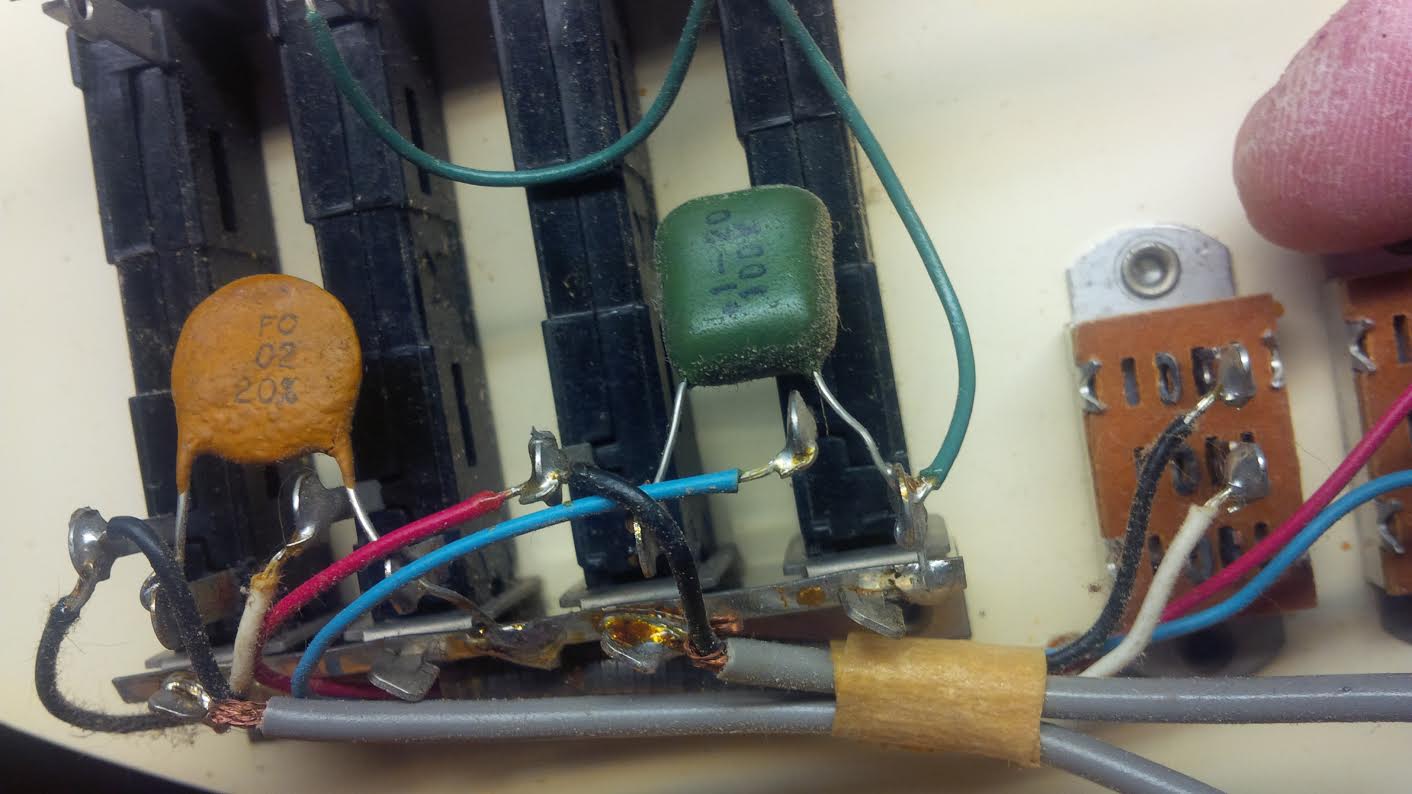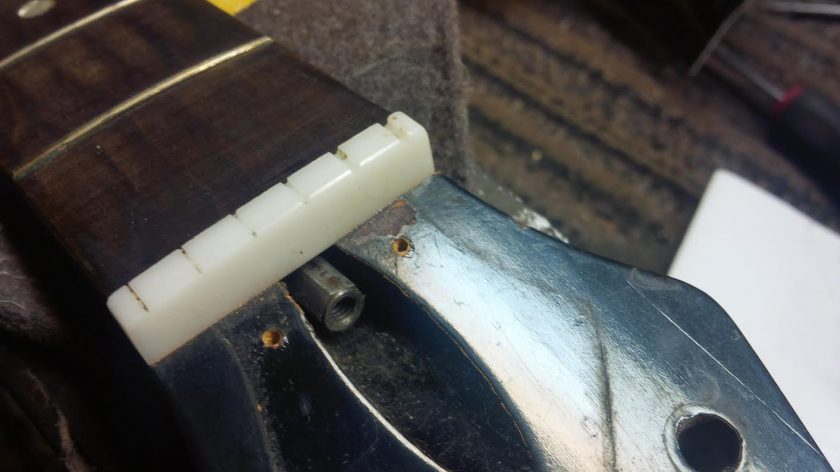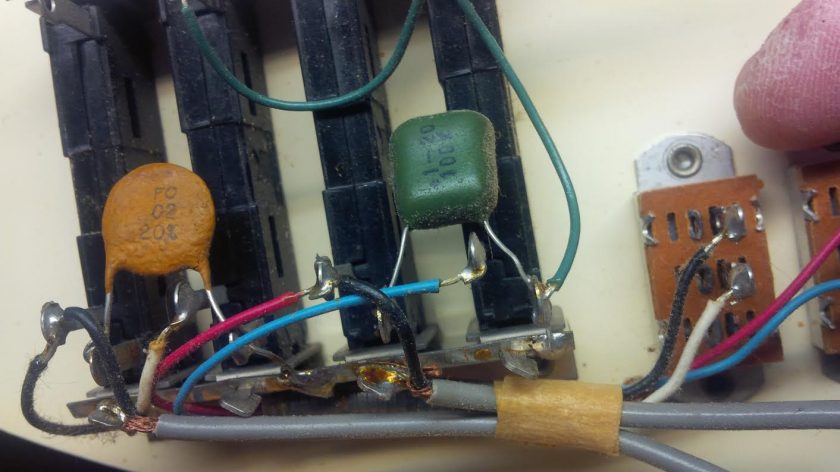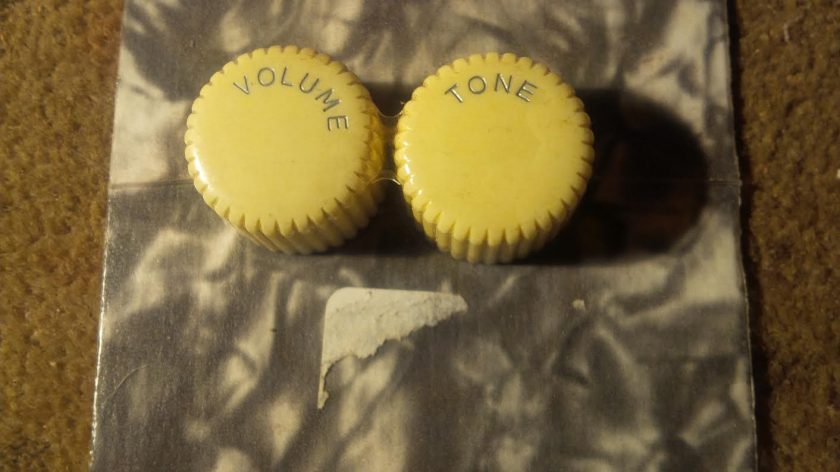
In my first article, I told you about my background and what I hope to accomplish with this series of articles. Like the title says: I want to help make you a Smarter Guitar Nut. The first thing to know about being a Smarter Guitar Nut is: how to ask the right questions about the guitar you might be buying. I won’t get into the potential issues around a guitar’s cosmetic condition in this article. For now, here’s what you need to ask: Is the guitar in good cosmetic condition and is the finish original or is it a “re-fin”.
What we’ll focus on in this article is the guitar’s functionality; its mechanical and electronic components and, if those are not fully functional, what you then need to consider. Here we go…
Hey, I know the feeling. That first sight of a really cool guitar and that moment when you know (and sometimes even say out loud) “I must have it!” To that, I say: Slow down…let’s have a look…and let’s ask some questions. Asking the right questions can save you hundreds, or even thousands of dollars…and a lot of heartache. Here are some questions to ask, whether you are inspecting the guitar in person or on line:
1 – Questions about the structural condition of the instrument
- Does the guitar have any cracks, broken or missing pieces or other damage?
- Has anything structural been damaged or modified such as extra routing for pickups or a broken or reshaped body, head-stock or neck?
NOTES:
- As you might expect, this is a biggie. A bad crack can mean an instrument is potentially un-fixable. On the upside, sometimes even an awful looking crack can be fixed so it is completely structurally sound.
2 – Questions about the truss rod
- Does the truss rod work properly?
- Is the truss rod nut in good shape, or is it worn or stripped?
NOTES:
- This is another big one. The truss rod must be working properly for the guitar to play correctly and truss rod repairs can be extremely expensive. Basically, a guitar that needs work on its truss rod has either got to be an incredible bargain or something you really, really want almost regardless of the added cost to fix it. The only silver lining on truss rods is that sometimes what seems to be a very serious problem can be fixed by a good repairman.

The cost of truss rod repairs can turn a bargain into a problem …and a broken truss rod can turn a guitar into a “GSO” (see my first article in this series about GSOs). This photo shows the truss rod adjustment nut is in good shape.
3 – Questions about the trueness of the neck.
- Does the neck take its proper shape under string tension once the truss rod is adjusted?
- If not, is the neck still over-bowed even with the truss rod tightened? Or, is it still back-bowed even with the truss rod loosened off?
- Is the neck twisted? (i.e. does one side of the neck – either treble or bass – have significantly more or less bow than the other)
NOTES:
- The “trueness” of a neck refers to whether it can be adjusted into proper shape by adjusting the truss rod with the strings up to tension. As will be fully explained in a future article about truss rods, the “proper shape” of a neck is actually very slightly bowed rather than perfectly straight. A problem with the neck’s trueness can be fixed, sometimes with a heat press to give the neck a new starting point, sometimes – if the situation is more serious or the neck is twisted – by removing the frets, planing the fingerboard, topped off by a re-fret. That’s very expensive!
4 – Questions about the frets
- Are the frets original or replaced? If replaced, what size are they?
- How much fret wear is there? Are there gouges in the frets?
- Have the frets been dressed and re-crowned recently? Is there enough fret left to dress now?
NOTES:
- Everything about frets can be measured to determine what size they are and precisely how much fret life is left. Most cellphone cameras are now good enough to take pictures of fret wear and gouges. A good repairman can (almost) always tell whether frets have been replaced.
5 – Questions about the electronics
- Do all the electronics work and work as they should?
- Are the electronics (pickups, switches, controls, capacitors etc.) original or have any been replaced?
- Have any components been obviously repaired?
NOTES:
- This can be a huge issue, especially if you want the guitar specifically for its pickups. Any serious purchase should be made only after an inspection or photo of the guitar’s inner workings. Rewiring a guitar can be expensive and rewiring a hollow or semi-hollow instrument can be very expensive.

A good photo of the electronics can help determine whether components are original.
6 – Questions about the hardware
- Is all the hardware original or have some parts been replaced?
- If replaced, is the new part the same or different than the original?
- Have any modifications been done to the guitar to accept replacement hardware or for any other reason? Are those modifications reversible?
NOTES:
- This is the area where you can often catch a break because of all the excellent replacement parts available these days. Be careful, though, if the missing or broken part is unique to the instrument, a replacement can be either hard to find, expensive or both.

All kinds of hard-to-find vintage parts have now been reproduced and are reasonably priced.
Once you’ve determined whether an instrument is fixable and how much it will cost to fix, just remember to add that amount to your actual total cost to obtain the guitar and re-do the math. Now, is it still a good deal?
There are two ways to deal with the cost of bringing a guitar up to good playing condition. One way is to simply say: “I’ll pass”, the other is to see if you can get the price of the instrument reduced enough to cover that additional cost, or at least a portion of it. With all these smart questions to ask, now all you need is a trustworthy seller who answers all your questions knowledgeably and honestly, and your trusted guitar tech to back you up the next time a “must have it” guitar comes along. So, get ready ‘cause you know there’s always gonna be a next time!

Very good advice and questions!!Thank you for posting!!Cheers
Good advice, but general. Would be nice if additional resources are referenced for specific problems.
You should add links to the previous article.
Never mind. I found the links way down at the bottom